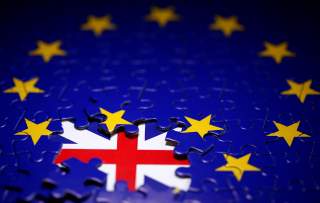Five Challenges for the European Union
The coming decade will show whether the bonds keeping the twenty-seven member states together are able to endure a new geopolitical setting and help them define a common vision.
Very little has been done to implement protection of the common external border of the EU. For the time being the influx of refugees and migrants has been brought under control, more or less, but primarily due to agreements with adjacent neighboring countries like Turkey—a situation that cannot last.
There is a good deal of worry about domestic policies in Poland and Hungary, which may not comply with the basic principles underpinning the EU. The independence of the judiciary system and the role of mass media are the main stumbling blocks.
The question is whether leadership will emerge to map out what to do and how to do it. French president Emmanuel Macron is eager but France’s companion in building the existing EU, Germany, is caught in a political deadlock.
Conclusion
EU can do without Britain even if it will be painful. There will certainly be taken steps to link Britain to either the EU or some member states where military security or similar strong common interests warrant it.
But the future of the integration is far more uncertain if there is a split between the Central European and Eastern European member states and the majority of the rest of the states over the direction of common policies and future integration. The EU expansions of 2004 and 2007 of the EU, which allowed these countries to become part of the union, was and still is seen as statecraft of the highest order. If fissures arise, then they will create a political problem as well as a moral defeat for the whole idea of European integration. Not the least because these countries have benefited from membership and narrowed the gap in GDP per capita to the rest of the member states. For example, Poland went from 23 percent of the EU average in 2004 to 42 percent in 2018.
Since 1950, European integration has enjoyed tacit U.S. support, which was not always fully appreciated or understood but still priceless. Trump’s lashing out at the EU signals a changing U.S. European policy. If the United States shifts to target individual countries instead of working with the EU, then solidarity among member states will be tested.
The coming decade will show whether the bonds keeping the twenty-seven member states together are able to endure a new geopolitical setting and help them define a common vision. Additionally, it remains to be seen whether the EU will have the money and instruments required to implement that vision. The world will closely watch Britain’s struggles and even more closely how the integration of the Central European and Eastern European countries develops. If the alternative looks like irrelevance on the international stage, then all twenty-seven members, or at least a large majority of them, may rally around plans to deepen the integration.
Joergen Oerstroem Moeller is an associate research fellow for the ISEAS Yusof Ishak Institute and a former State Secretary at the Danish foreign ministry.
Image: Rueters

